Changemakers for a brighter future
Three awardees from Nanyang Alumni Awards 2022 spearhead ventures that have illuminated the way to a more sustainable future. Our NTU alumni share what drives their mission for sustainability and why sustainable living is vital.
Text: Dr Daphne Ng
 | Lawrence Wu (NBS/2000), 46, is Chief Financial Officer and Co-founder of EDPR Sunseap, a leading clean energy solutions provider in Singapore. The company operates in nine countries in the Asia-Pacific region. |
Dr Sandhya Sriram (SBS/2013), 37, is the Group CEO and Co-founder of Shiok Meats, Singapore’s first cell-based meat venture, whose cellular technology aims to bring cultivated seafood and meat to our plates. In 2019, Shiok Meats unveiled its
first creation – shrimp dumplings made with cultivated shrimp. | 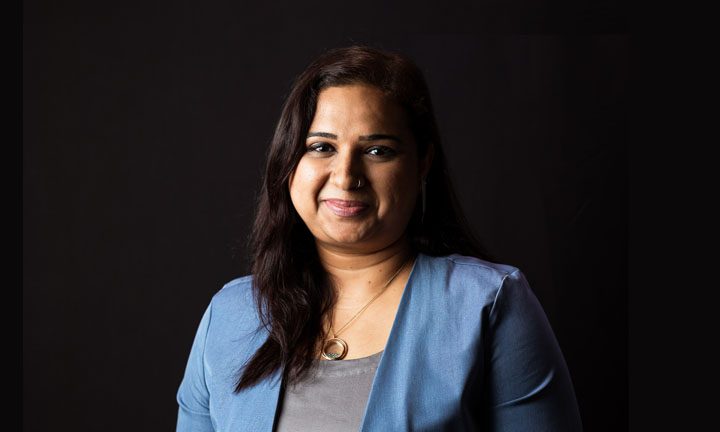 |
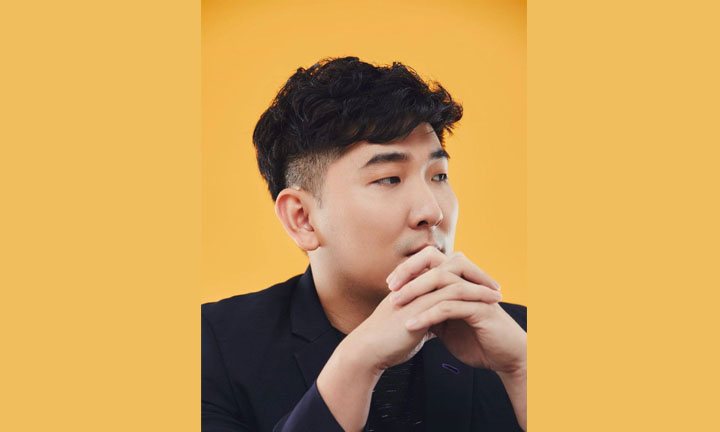 | Lau Jiacai (NBS/2016), 30, co-founded TreeDots, a platform that distributes surplus or imperfect food from suppliers to food and beverage businesses at discounted prices to reduce food waste. |
What does sustainability mean to you and why is it important?
Lawrence: Everyone has a part to play in ensuring that we live sustainably now and in the future. In recent years, the negative effects of climate change such as floods and heatwaves are becoming even more apparent. Individuals and businesses should not ignore the consequences of excessive consumption on the environment. As such, it is important that companies consider their impact on the environment while taking care of the needs of every stakeholder in the business, including the suppliers, customers, employees and shareholders.
Sandhya: When I think about sustainability, self-reliance, self-sufficiency and resilience come to mind. The COVID-19 pandemic has changed how we think and how we respond to crises. Many countries are now immensely concerned about food supply, security and availability.
Political leaders and regulators are looking at ways to strengthen their food supply chains. Additionally, consumers are becoming more conscious about the impact of their eating habits on the environment.
Jiacai: More than a buzzword, sustainability should be a way of life. With climate change taking its toll on the environment, how to live sustainably is on everyone’s mind. As a young person, the quality of life that my generation and generations to come will enjoy is something that is especially close to my heart.
Tell us more about how your venture aims to help us lead more sustainable lives.
Lawrence: With the depletion of fossil fuels and rapid climate change, renewable energy sources such as solar and wind energy have become even more important. However, the hefty initial cost required to build, operate and maintain solar and wind farms is a barrier to the widespread use of renewable energy. We operate solarand wind farms and supply the energy generated to consumers, who only pay for the energy that they use, at competitive electricity tariff rates and with zero capital investments. By doing so, we hope to enable more users to adopt solar and wind energy without incurring the costs required for building and maintaining infrastructure.
Sandhya: The growing demand for seafood to feed an increasing population has led to the overharvesting of fish and shellfish from the wild, threatening the populations of these marine life and their habitats. By growing seafood such as shrimp, lobster, crab and crayfish from stem cells – special cells that develop into the meat that we consume – we aim to make cultivated seafood available to everyone. This way, we hope that the pressure on oceans to feed us will be reduced, enabling habitats and populations to recover from the damage caused over the years.
Jiacai: Edible food is discarded at every point along the food supply chain, from production to retail. About one-third of the food produced for consumption – amounting to about 1.3 million tonnes – is lost or wasted every year globally. TreeDots is a platform that connects food suppliers looking to sell their excess or imperfect food products with food and beverage businesses who want to buy such products. By 2025, we hope to save two million tonnes of food from being wasted. We also provide logistics solutions to help businesses deliver chilled and frozen food products more efficiently. This way, we hope to cut carbon emissions and reduce food lost due to improper transportation conditions.
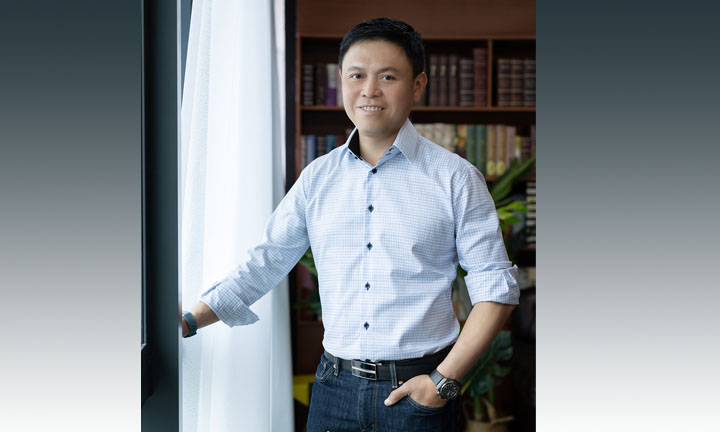 "Artificial intelligence and data analytics will also play a major role in hepling us lead more energy-efficient lives." -
Lawrence Wu
"Artificial intelligence and data analytics will also play a major role in hepling us lead more energy-efficient lives." -
Lawrence Wu
What inspired you to take the leap into making a difference in sustainable development?
Lawrence: Prior to co-founding EDPR Sunseap, I was an investment banker for 10 years. When I decided to take the plunge into sustainable entrepreneurship, opportunities in the renewable energy sector were up and coming and I made the calculated move after considering the potential risks and rewards. On the personal front, I had just become a father when we started EDPR Sunseap. Becoming a parent motivated me to take the initiative to protect our environment for the next generation. Providing clean energy and building a viable business in a sustainable fashion has been extremely satisfying.
Sandhya: Shiok Meats was conceived because I strongly believed a sustainable solution was required to feed the everincreasing population without straining the oceans further. We were pioneers in this area as there was no one else working on cultivated seafood or any alternative to seafood in Southeast Asia when we started in 2018. We also broke new ground as no one was working on cultivating crustaceans. Our mission at Shiok Meats is also to enable everyone to enjoy seafood without concerns about animal welfare. Growing up as a vegetarian, it is amazing that I am now working on making crueltyfree, sustainable seafood available to everyone.
Jiacai: I was a financial services auditor before starting TreeDots. Working with startups in the fintech industry spurred my interest in starting my own company. At the same time, I am driven to make a difference for the world. The idea for TreeDots came from my overseas exchange trip to Germany. The six months I spent in Frankfurt opened my eyes to the problem of food wastage. I saw that supermarkets in Germany have a section where they sell imperfect or close to expiry food products that would be thrown away. I realised that there was an opportunity in Singapore for reducing food waste by selling excess food that would otherwise be discarded.
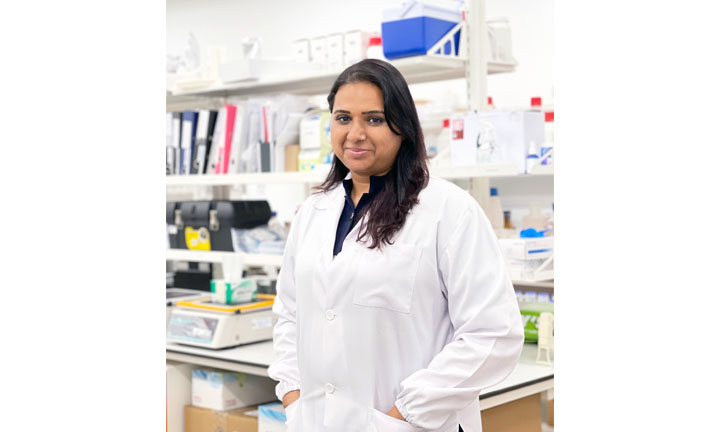 "My PhD prepared me to be resilient, headstrong and ready for the ups and downs of running a company." -
Dr Sandhya Sriram
"My PhD prepared me to be resilient, headstrong and ready for the ups and downs of running a company." -
Dr Sandhya Sriram
What exciting developments and opportunities in sustainable development do you foresee in the coming decade?
Lawrence: As energy production and storage technologies become more advanced and cost-effective, he transition to clean energy sources such as solar and wind energy is accelerating. Artificial intelligence and data analytics will play a major role in helping us lead more energy-efficient lives. At Sunseap EDPR, we can also use machine learning software to predict and adjust the amount of air-conditioning required to cool a building. This helps our customers conserve the energy used for airconditioning.
Sandhya: Alternative seafood products, such as cultivated seafood, are no longer figments of our imagination. Someday, you will eat seafood products that were produced without harming animals or the environment. From gourmet dishes at restaurants to ready-to-cook products at supermarkets, even seafood you can grow at home, we are optimistic about the future possibilities of cultivated seafood.
Jiacai: The sustainable development scene is an exciting one to be in and I foresee exponential growth in this area. There is a lot of room for improvement in making food supply chains more efficient, so as to reduce food wastage. For example, advancements in refrigeration technologies will help reduce food spoilage and hence wastage. Cloud computing will also make transporting food to supermarkets and restaurants more efficient as deliveries can be coordinated to maximise the resources used during transport. These technologies will revolutionise the food industry, which is still inefficient and heavily reliant on manual labour.
Some words of advice for those who are thinking of following in your footsteps into sustainable entrepreneurship?
Lawrence: There are many avenues of sustainability so you should be focused on the problem that you want to solve. Entrepreneurs should also ask themselves if their solutions to the problem can be scaled and applied to a wide market. Lastly, a truly sustainable enterprise should be commercially viable for the company to thrive in the long run.
Sandhya: Just go for it – try it and see if you like it and if you can succeed. Expect challenges and be ready for them. The biggest hurdles so far have been the scientific challenges of cultivating seafood, as well as educating consumers and the industry about the benefits of cultivated seafood. These challenges are a reminder that I still have a lot to work towards and achieve, to bring sustainable seafood to everyone’s plates!
Jiacai: Although there may be a steep learning curve in the beginning, especially if you are not familiar with the industry, I encourage you to take a leap of faith if running a startup that makes a difference for the world is what you want to do. Don’t let your age and lack of experience hold you back. You should also be open to learning skills on the go as you will need to be familiar with running all aspects of the business, in order to manage the startup well. And don’t forget to consider the business sustainability of the startup from the get-go.
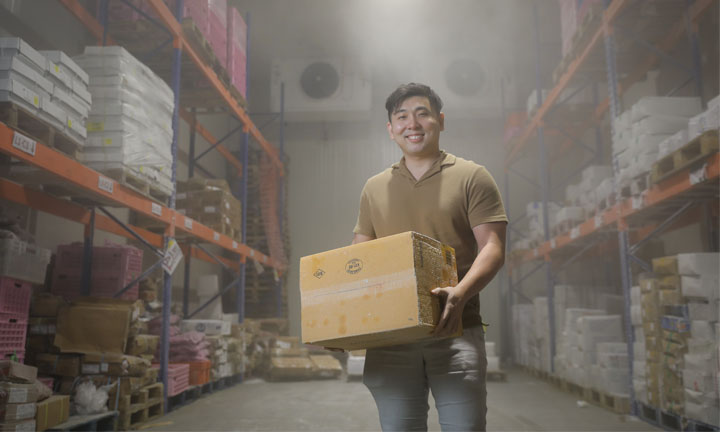 "I think sustainability starts from the individual. Through changes in lifestyle, we can all do our part for a better world. Every bit counts." - Lau Jiacai
"I think sustainability starts from the individual. Through changes in lifestyle, we can all do our part for a better world. Every bit counts." - Lau Jiacai
(Photo: The Straits Times © SPH Media Limited. Permission required for reproduction.)
This article first appeared in issue 2 of U, the NTU alumni magazine.







